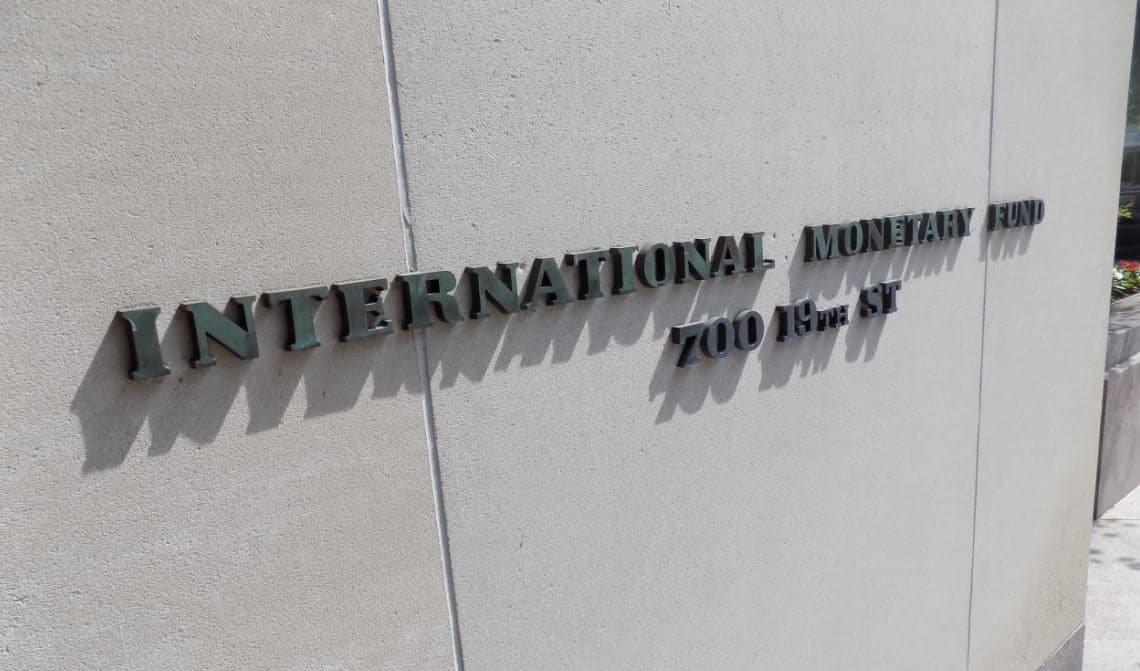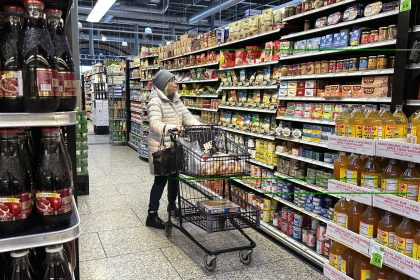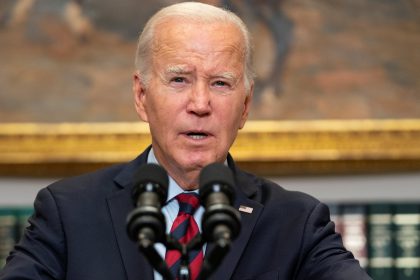IMF Says World Faces Prospect of Deep Recession In COVID-19’s Wake

WASHINGTON – The global economy will likely experience the worst recession since the 1930s as governments around the world fight to end the coronavirus outbreak and restart their economies, the International Monetary Fund said Tuesday.
The organization, which is headquartered just blocks from the White House, expects the global economy to contract by 3% in 2020. This after predicting in January that global gross domestic product would grow by 3.3% this year.
“The world has changed dramatically in the three months since our last update of the World Economic Outlook,” said Gita Gopinath, the IMF’s chief economist, in the latest edition of IMF’s latest World Economic Outlook report.
“A rare disaster, a coronavirus pandemic, has resulted in a tragically large number of human lives being lost” Gopinath continued. “As countries implement necessary quarantines and social distancing practices to contain the pandemic, the world has been put in a great lockdown.
“The magnitude and speed of collapse in activity that has followed is unlike anything experienced in our lifetimes,” she said. “It is very likely that this year the global economy will experience its worst recession since the Great Depression, surpassing that seen during the global financial crisis a decade ago.”
If there is a bright side to today’s report, it’s that the IMF sees a partial recovery occurring as soon as next year, “with above trend growth rates.”
But Gopinath cautions the level of GDP growth around the world will “remain below the pre-virus trend, with considerable uncertainty about the strength of the rebound.”
The somber tone of the IMF’s report mirrors earlier assessments by the World Trade Organization and the Organization for Economic Coordination and Development.
Last week, the WTO predicted global trade will likely contract by between 13% and 32% this year.
Last month, the OECD issued an interim economic report that saw global growth being halved, dropping to 1.5%, due to the coronavirus outbreak.
But it has since said that conclusion was optimistic. The organization now estimates that for each month the necessary containment measures continue, the drop in national output will be equivalent to a decline in annual GDP growth of up to 2 percentage points.
Not Surprisingly, Euro Zone Hit Hardest
Based on its current models, the IMF suggests the U.S. economy will shrink by 5.9% this year.
As bracing as that is, the Euro Zone’s economy is expected to contract by 7.5%.
Meanwhile China, where the coronavirus first became a public health crisis, will see its economy grow by a tepid 1.2% in 2020.
The economic situation will be particularly difficult in Italy and Spain, where GDP is set to contract by 9.1% and 8%, respectively. These two countries are the worst hit in Europe by COVID-19.
“Countries reliant on tourism, travel, hospitality, and entertainment for their growth are experiencing particularly large disruptions,” the report says. “Emerging market and developing economies face additional challenges with unprecedented reversals in capital flows as global risk appetite wanes, and currency pressures, while coping with weaker health systems, and more limited fiscal space to provide support.
“Moreover, several economies entered this crisis in a vulnerable state with sluggish growth and high debt levels,” the report’s authors add.
In light of this, the IMF said it has received an “unprecedented” number of requests for emergency funding, with 90 of its 189 members seeking some level of financial support. The fund currently has about $1 trillion in lending capacity.
Fiscal Policies to Contain the Damage
“This is a truly global crisis as no country is spared,” the IMF says, advising governments to do “whatever it takes” to save lives and protect people, but also reminding them “they must make sure to keep the receipts.”
In an IMF Blog post accompanying the release of Tuesday’s report, economists Vitor Gaspar, Mehdi Raissi, and W. Raphael Lam, all of the IMF’s Fiscal Affairs Department, said so far, countries have taken fiscal actions amounting to about $8 trillion to contain the pandemic and its damage to the economy.
Going forward, they said there are three guiding principles countries should follow:
· Target support to households to ensure access to basic goods and services and to a decent standard of living. To avoid permanent scarring, target support to viable businesses to limit layoffs and bankruptcies;
· Deploy resources in a temporary and efficient way and reflect the costs in multiyear fiscal reports. Governments should reinforce principles of good governance commensurate with the scale of intervention. That should include, for example, accurate accounting; frequent, timely and complete disclosure of information; and the adoption of procedures to allow for ex-post evaluation and accountability.
· Assess, monitor, and disclose the fiscal risks because not all measures will have an immediate effect on deficits and debts. For example, government guarantees extended on business loans may have no upfront costs but will fall on the government accounts if businesses fail to honor their obligations in the future.
As the pandemic abates and the “Great Lockdown” ends, the economists believe a globally coordinated, broad-based fiscal stimulus may become an effective tool to foster the recovery.
“Coordination enhances the effectiveness of policy actions. But, at the same time, it has to respect relevant differences across countries, mainly in their financing capacity,” they wrote.
The economists suggest that advanced economies will be able to rely on a wide range of instruments on the spending, tax, and liquidity front to support people and firms given their strong tax-benefit systems.
“In the United States and Germany, for example, measures include extended unemployment benefits, including for the self-employed; payroll tax deferral; and wage subsidies to small and medium enterprises,” they wrote.
Many workers, small enterprises, and self-employed entrepreneurs struggle to pay bills, make debt payments, and keep people on the payroll. To help them, several European countries have rolled out liquidity lifelines such as affordable loans or guarantees.
“France and Japan are providing government-funded paid sick and family leave to those who are unwell, self-isolate, or have to stay home and look after children during school closings,” the authors note.






















